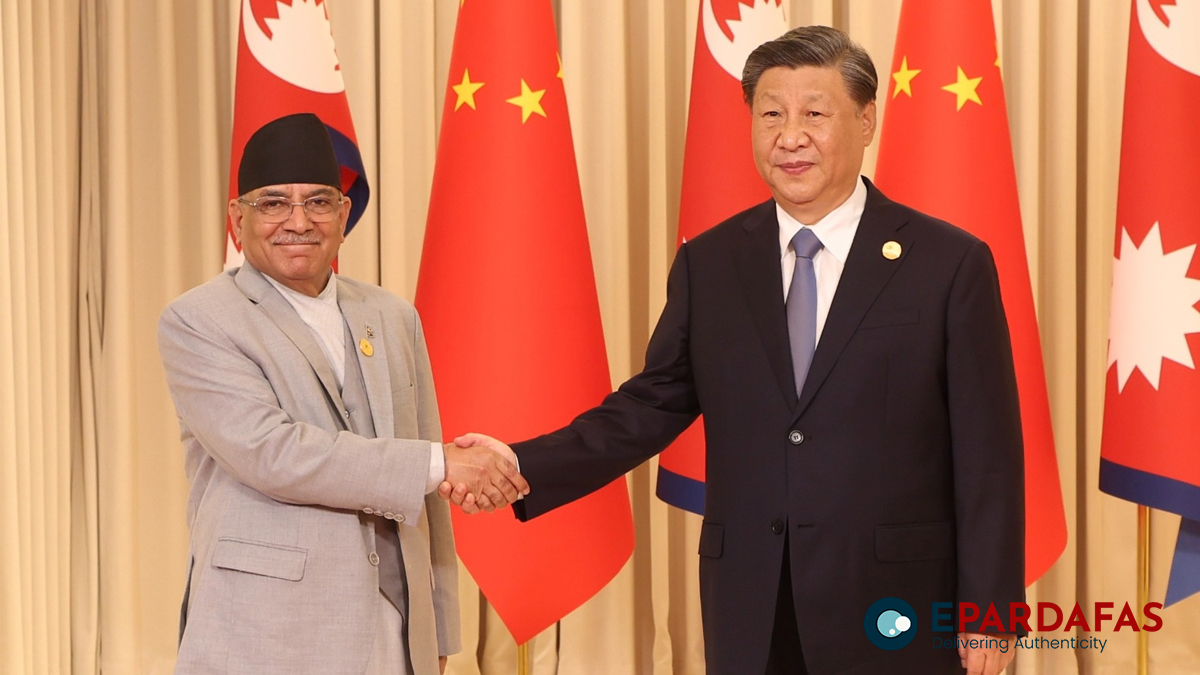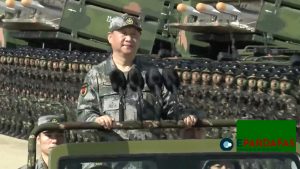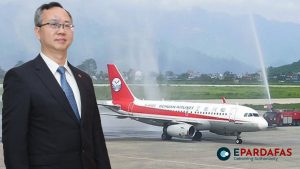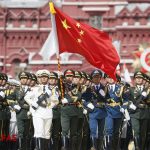
Prime Minister’s Visit to China: Nepal Witnesses China’s Ambitions
The recent visit of Nepal’s Prime Minister Pushpa Kamal Dahal ‘Prachanda’ to China has reinforced the focus on implementing existing agreements between the two nations. Following high-level talks, a joint statement highlighted agreements related to electricity transmission lines, infrastructure development, and cooperation in agriculture and industry sectors.
The joint statement released by Nepal’s Ministry of Foreign Affairs underscores China’s growing influence over Nepal and its alignment with China’s interests, particularly in relation to the sensitive issue of Taiwan’s independence. China has succeeded in embedding Nepal’s commitment to the ‘One-China’ policy, including opposition to Taiwan independence, into the joint statement. Surprisingly, the Prime Minister did not raise the issue of Nepal’s revised map during the discussions.
While a notification indicates a review of mutual legal assistance, it lacks clarity on the specific revisions required. This has raised concerns in international circles about the extent of this revision and its implications.
Both nations have agreed to conduct joint inspections of the China-Nepal border and expedite the implementation of a border management system agreement. Additionally, they have committed to consulting on the establishment of a three-level border communication system, aimed at enhancing border management.
The joint notification mentions plans for developing the tourism sector but remains silent on issues like visa fees for Chinese tourists, the use of WeChat money, and the operation of Chinese-invested businesses in Nepal. These omissions have disappointed local entrepreneurs.
Several past agreements between Nepal and China have faced criticism and controversy. The Damak Industrial Park in Jhapa has experienced delays and disputes, hindering its development. The Pokhara International Airport, constructed under Chinese leadership, has struggled to operate effectively, even a year after its inauguration. This project, financed by a Chinese bank, carries substantial annual interest payments.
Nepal’s participation in China’s ambitious Belt and Road Initiative (BRI) has not yielded significant benefits. The high interest rates associated with Chinese projects have exacerbated Nepal’s economic challenges. However, no progress was reported regarding the BRI during the recent visit.
An agreement was reached to open traditional border crossings, similar to a prior agreement following Chinese President Xi Jinping’s visit to Nepal. Nevertheless, Nepal has experienced difficulties at the border with China during events like earthquakes and the COVID-19 pandemic, resembling blockades. China has relaxed border restrictions temporarily ahead of bilateral talks.
Both nations have also agreed to advance an international electricity transmission line project. While this project, the Chilime-Kerung transmission line, was initiated five years ago, it had stalled. The revival of this project is expected to boost electricity trade. However, given Nepal’s increasing trade deficit with China, there are concerns about the impact of the transmission line on this imbalance.
The talks also addressed security concerns raised by China, emphasizing Nepal’s role in maintaining regional stability. However, some observers argue that China’s own activities, such as the Damak Industrial Park, contribute to geopolitical tensions. Nepal, positioned between China and India, faces the challenge of balancing relations between these two major neighbors.
CPN-UML Chairman KP Sharma Oli, during his tenure as Prime Minister, played a significant role in the construction of the Nepal-China Industrial Park in Damak, which is situated merely 25 kilometers from the Indian border. Interestingly, however, Oli vociferously opposed the establishment of a Buddhist college on land located 125 kilometers from the Chinese border. These contrasting stances of political parties adopting biased policies towards one country while opposing another raise concerns about their potential impact on Nepal’s future.
While agreements for infrastructure development in Nepal have been made with China, projects have often faced delays and cost overruns. China’s provision of loans at high interest rates for these projects has raised concerns about Nepal’s financial stability.
In light of these challenges, Nepali leaders must exercise caution when seeking Chinese cooperation to avoid the pitfalls experienced by countries like Sri Lanka, which have faced financial difficulties due to expensive loans.
Prime Minister Dahal’s visit to China has brought Nepal further into China’s orbit, emphasizing the need for Nepal to carefully navigate its relationships and ensure that agreements translate into tangible benefits for the nation and its people.
Read Full Text of Joint Statement:
















Comments